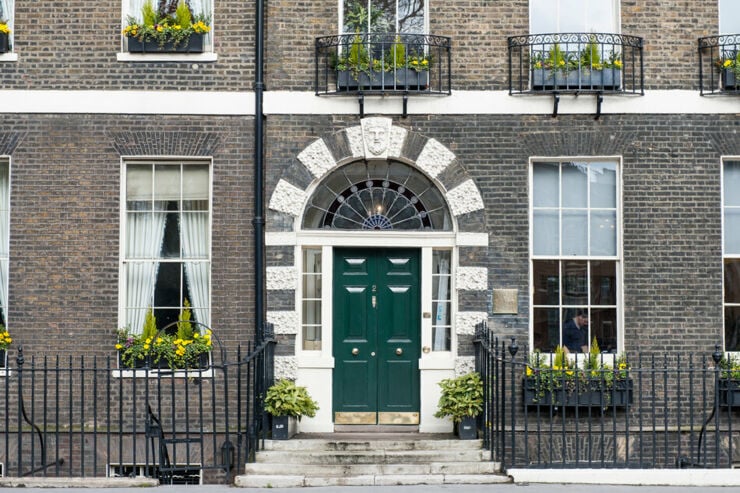Summary of the role of the valuer
In the UK, all chartered surveyors belong to the Royal Institution of Chartered Surveyors (‘RICS’).
Property valuations take place via an RICS Valuation – Global Standards (incorporating the IVSC International Valuation Standards) as well as the UK National Supplement, if necessary. Together, this is most commonly known as a Red Book valuation.
Types Of Valuations Available
Most of the valuations undertaken by a valuer are for security backed mortgage purposes. In the case of a property, they provide an opinion of the market value of the property. Market value is defined as:
“The estimated amount for which an asset or liability should exchange on the valuation date between a willing buyer and a willing seller in an arm’s length transaction, after proper marketing and where the parties have each acted knowledgeably, prudently and without compulsion.”
The instruction to carry out a valuation often comes from clearing banks and private banks. These firms often have established relationships with valuers who they are brought in as required, based on their expertise and where they operate.
Other types of valuations can be carried out for other reasons, and these are usually on behalf of high-net-worth individuals, sovereign wealth funds, family offices and trust companies.
When is a valuation required?
In recent years, more valuations have been required because of changes to the UK’s tax laws. For example, a valuation may be performed in order to calculate the ATED (annual tax on enveloped dwellings) if a property is held in offshore company structures.
Valuations are also likely to be required to calculate the basis for capital gains tax, particularly based on the new legislation which came into force on 6 April 2015, on a property if you are a non-UK resident. Because tax valuations come under the scrutiny of Her Majesty’s Revenue and Customs (HMRC) and the District Valuer, the purposes for which they are required,valuations are also likely to be required to calculate the basis for capital gains tax on a property if you are not a resident of the UK. Because tax valuations come under the scrutiny of Her Majesty’s Revenue and Customs (HMRC), the purposes for which they are required and how they are calculated are critical for your tax planning.
If you have a leasehold and you wish to extend your lease by 90 years, acquire a freehold or collectively enfranchise a block of flats under the Leasehold Reform legislation, a valuation is also necessary. These types of valuations are very complex and require a highly specialist approach. The UK government is currently reviewing how to make this process simpler and less expensive for lessees, so current legislation may well change in the future.
Valuations are also provided of investment portfolios for loan security and accounts purposes. Valuers will act in matters concerning rent reviews on the Great London Estates. Valuations are also required for matrimonial and litigation, particularly if a case will be settled in court.
How a property’s value is established or determine
When a valuer is instructed to carry out an evaluation by a lender, a valuer will agree on the types of valuations that are required, the fee and the timeline.
Because property in prime central London is valued so highly, a local estate agent who is highly familiar with the market will usually be asked to perform valuations. Property values can change significantly from street to street, so valuers will carry out their own review of the property. This inspection will form the bedrock of the valuation.
The aim of a valuation is to establish the property’s market value, which will reflect the location, size, property type, parking, the building’s condition and tenure. For apartments, which floor the property is located on, service charges, planning consent and any recent improvements will also be considered.
Comparable property sale prices are fundamental to a valuation. Valuers will use specialised databases to review key sale data and figures, as well as their experience and local market knowledge to determine the market price.
When a valuation is undertaken on behalf of a lender, the valuer will also look to establish when the property went on the market, the level of interest, number of viewings, number of offers made and the background to the offer that has been agreed. This step provides assurance to the lender that the offer made by the buyers reflects the actual market value of the property.
Valuers need to support the purchase price with hard facts and evidence. Therefore, when valuing an apartment, analysis of a rate per square foot basis for comparable properties will be critical. In the case of a house, (especially a high-value property), analysis on a rate per square foot basis is not always appropriate because there is typically a standard "ceiling" price for houses in certain locations. As a result, the valuer will likely consult with key local agents to learn more about the local market, recent sales and comparable properties.
Valuers are liable for the advice and contents of their reports under their contract with the lender. As a result, they will often seek a peer review with senior valuers to ensure that their opinion of the property’s market value is correct.
Thanks to Anthony Griffiths, FRICS, Director at Savills, for the guest article
For more information, download the ''How to Buy and Finance Luxury Property in London'' guide




